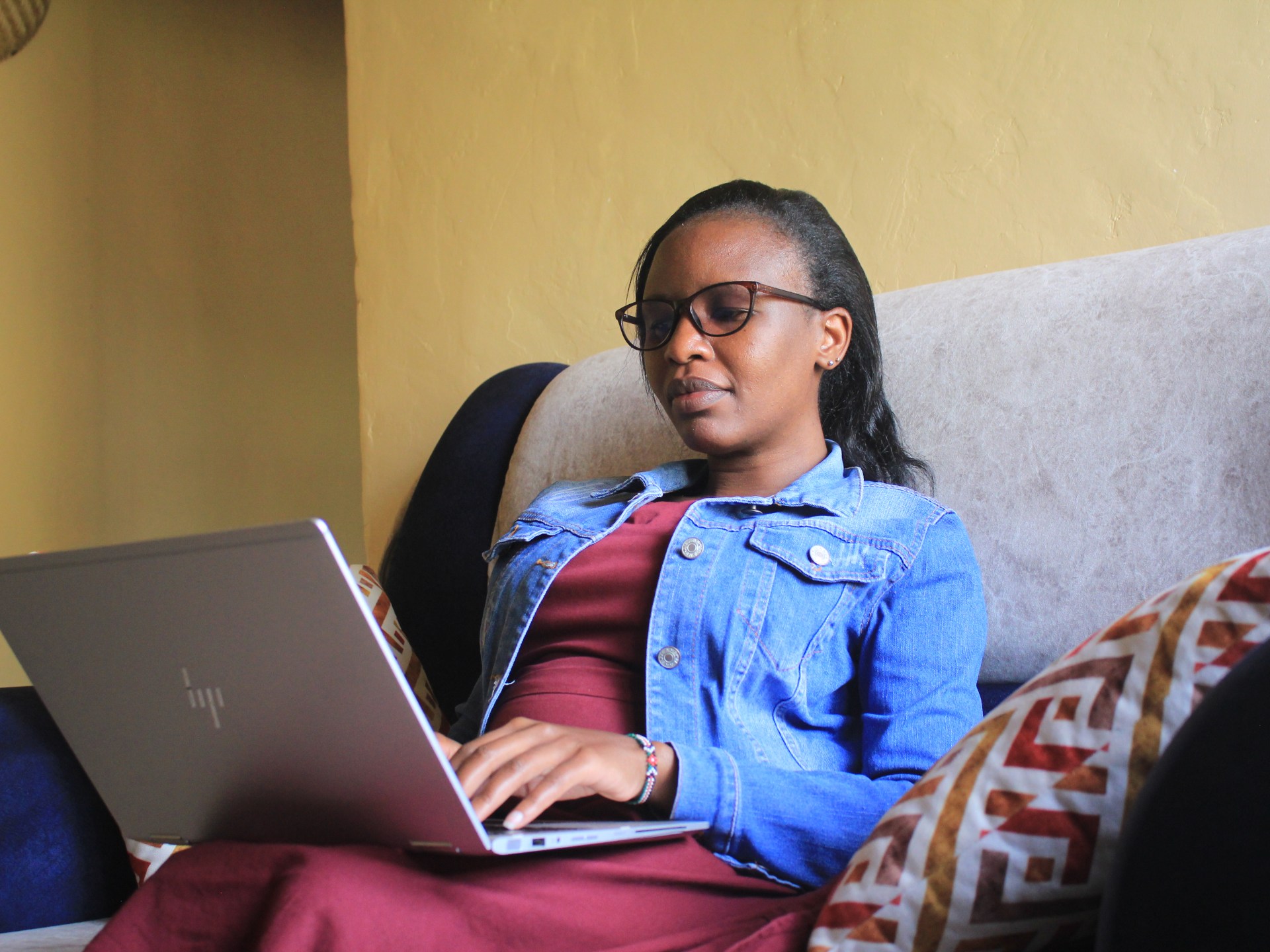Rural Kenyans power West’s AI revolution. Now they want more | Technology
Naivasha, Kenya – Caroline Njau comes from a family of farmers who tend to fields of maize, wheat, and potatoes in the hilly terrain near Nyahururu, 180 kilometres (112 miles) north of the capital Nairobi.
But Njau has chosen a different path in life.
These days, the 30-year-old lives in Naivasha, a scenic town at the centre of Kenya’s flower industry and midway between Nyahururu and Nairobi. Seated in her living room with a cup of milk tea, she labels data for artificial intelligence (AI) companies abroad on an app. The sun rises over the unpaved streets of her neighbourhood as she flicks through images of tarmac roads, intersections and sidewalks on her smartphone while carefully drawing boxes around various objects; traffic lights, cars, pedestrians, and signposts. The designer of the app – an American subcontractor to Silicon Valley companies – pays her $3 an hour.
Njau is a so-called annotator, and her annotation of data compiles the building blocks that train artificial intelligence to recognise patterns in real life, in this case, with self-driving cars.
“My parents have not fully embraced technology because they find it hard to learn. But I always loved science. Data annotation creates opportunities, and you do not need a degree to do this – just your phone and an internet connection,” says Njau who studied teaching but has been annotating since 2021.
Kenya is emerging as a hub for such online work, rising to compete with countries like India and the Philippines. The birth of tech start-ups since the late 2000s, followed by the entry of tech outsourcing companies, along with business-friendly policies, skilled labour and high-speed internet have all led to an economy where digital jobs are the bread and butter for a large portion of the youth. In 2021, a survey by Kenya Private Sector Alliance (KEPSA) showed that at least 1.2 million Kenyans are working online, most of them informally.
But Nairobi’s data annotators have recently revealed a less rosy side to this industry. In a Time article from last year, workers at an outsourcing firm in Nairobi described the “torture” they went through while labelling pieces of texts drawn from the darkest corners of the internet – all in a quest to make OpenAI’s ChatGPT able to recognise harmful content. According to the piece, the workers were paid less than $2 an hour to do this.
AI in the countryside
Despite these stories, the annotation industry has continued to spread far beyond the cramped office spaces in Nairobi.
In mid-January, when Kenya’s President William Ruto launched a government-sponsored tech hub in Kitale – an agricultural town near the border with Uganda – a young ICT student explained how he had earned $284 in three weeks by training AI for Silicon Valley companies. He had been using Remotasks, an American website where freelancers get paid for labelling data.
The video clip from the tech hub – one among a series of facilities designed to equip learners with marketable tech skills – spread like wildfire on social media and made young Kenyans rush to create Remotasks accounts.
“Many young people are jobless. Even people who graduated in computer science cannot find jobs. The government is doing right by helping young people access online work,” says Kennedy Cheruyot, 24, a recently graduated nurse from Eldoret in western Kenya.
He opened a Remotasks account in 2021 and has continued to work online while looking for a job in hospitals. Some of his friends have entirely left other careers to focus on digital tasks.
“Previously, boys in our culture were supposed to go to the farm, herding the cattle. Now, they stay inside to do online work,” Cheruyot says when we meet at a cafe overlooking Eldoret’s business district. Hardware and agricultural supply stores blend with bright yellow signs advertising internet cafes, so-called “cybers”.
Although Cheruyot’s dream is to own a ranch “like in the Western movies”, he currently spends most of his time looking for more online gigs to pay for rent, food, electricity, water and transport.
Commodity prices in Kenya have soared since 2022, attributed to a prolonged drought that year and the Russia-Ukraine war. Meanwhile, the Kenyan shilling has continued to depreciate due to demand for dollars from the energy and manufacturing sectors. As the shilling weakens, import prices increase and with them the cost of goods for consumers like Cheruyot.
He expects that, should he land a job as a nurse, he will continue to work online in his spare time, earning from $5 to $20 an hour depending on the task.
“I do not care if the AI companies in the West grow rich because of our work. As long as we are paid. It may not seem like much, but it goes a long way in Kenya,” he says.
A new generation of scientists
But for Njau, the monotonous online tasks are a gateway to something bigger.
“Right now, Kenyan annotators water someone else’s garden. The flowers begin to bloom, but we are not even there to see it,” she says, gesturing towards the green grass outside her brick house.
“I do not want to stay in data annotation, my goal is to advance in technology. I want to know where the data go and how AI is programmed. Technology is taking over whether we like it or not, and us Kenyans should become data scientists,” says Njau who has already trained people with disabilities and young women in data annotation together with the Nairobi-based non-profit Next Step Foundation. Recently, she was awarded a scholarship in AI and data science by the Ministry of Investments, Trade and Industry.
Programmes like these aim to make Kenya a frontrunner in the technological revolution, explains Nickson Otieno, training manager at Next Step Foundation.
“I will not be surprised if a Kenyan comes up with the next big AI invention. We have an innovative generation and there are many problems to solve. For example, how can AI be used to inform Kenya Power and Lighting Company about blackouts by feeding it with complaints about power cuts posted on social media?” asks Otieno.
Still, there are bumps on the road to make Kenya – and other African countries – stand out as AI innovation hubs. According to Professor Tshilidzi Marwala, a South African scholar of AI and the Rector of the United Nations University, the education systems need an overhaul.
“Africans often receive quite specialised education, which is the case in countries like Kenya and South Africa that have British-oriented education systems. However, specialised education is outdated in a multidisciplinary world,” he argues and brings up an example: to create an AI platform that analyses x-ray images, one must master both medical and computer science.
Much of the conversation regarding AI, such as OpenAI’s ChatGPT, has focused on the human jobs that risk redundancy, and this is also a real concern in African countries. Marwala, however, believes that many people have “overplayed the significance of AI and confused it with normal automation”. Furthermore, AI might help small-scale businesses thrive.
“If a flower farmer in South Africa uses AI to analyse the soil quality using a camera rather than paying a scientist to do it, this could make the flower production cheaper for the farmer. I foresee AI providing much more efficiency and cost reduction,” he says.
AI apps that rely on data labelled by Kenyans, such as the chatbot ChatGPT, are already popular with young people like Njau and Cheruyot. He finds it “really useful” when in need of recipes or travel itineraries. But it cannot do his work for him.
Check out our Latest News and Follow us at Facebook
Original Source







